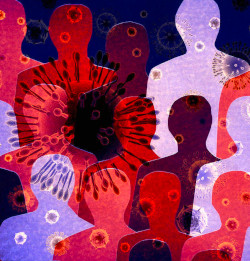 Image source: 4plebs.org
Image source: 4plebs.org
The American Left was driven to choose: Do we support the Black Lives or the Blue Collars? I do not mean the blue collars of the police, but those of working people and of those who are desperate for work. Do we attempt to reduce the founding sin of slavery, which resulted in Jim Crow and persistent racism and police brutality, or do we build a more equitable nation for all of the 99%? This is, essentially, the battle that was fought in the Democratic primaries of 2016 and 2020. For better or worse (and I think for the better), that battle has been decided in favor of the Black Lives. Any attempt to undermine that decision at this point is a historic mistake.
Progressives will doubtlessly make the case that it was the white collars that really won. Maybe so, but progressives failed to convince the Black community of their case. Joe Biden was carried to the nomination by the Black vote. The same was true of Hillary Clinton in 2016. Joe Biden and Hillary Clinton also won their nominations, in part, because of women’s votes. So too, Joe Biden and Hillary Clinton won with older voters. Though a discussion about the Hispanic vote may be interesting (Sanders did well with the Hispanic vote), the image of the Sanders supporter is largely White, male, and young. Furthermore, though this is not from the data but from personal experience, the image of the Sanders supporters was young, white men who were combatively sure of their correctness.
Below the fold, I discuss why progressives are getting the short end of the political stick, and why - for now - they deserve what they get. Essentially, racism is not what they think it is. Beyond that, however, I discuss what progressives can do about changing their behavior to be more politically and socially effective. In short, it is about doing more community and fewer polemics.
